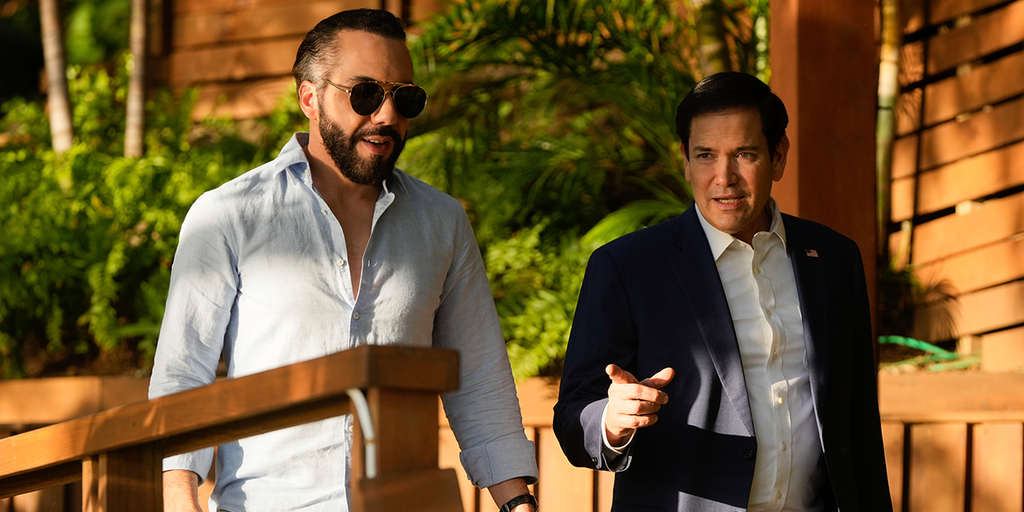El Salvador President Proposes Migratory Agreement to Accept U.S. Deportees

El Salvador President Nayib Bukele has proposed accepting U.S. deportees into his country's prison system for a fee. This comes amid discussions on migratory agreements and mass deportation strategies.
El Salvador's President Nayib Bukele has proposed that illegal immigrants facing deportation in the U.S. be accommodated in his country's prison system for a fee. This offer comes after a meeting with Secretary of State Marco Rubio at Bukele's residence near San Salvador.
"We have offered the United States of America the opportunity to outsource part of its prison system," Bukele stated on X. He emphasized that they would accept only convicted criminals, including U.S. citizens, into their mega-prison (CECOT) in exchange for a fee that would be significant for El Salvador but relatively low for the U.S.
Rubio commented that Bukele's proposal represents a remarkable migratory agreement globally. He confirmed that this offer would allow the U.S. to send illegal immigrants to El Salvador, where they would be incarcerated.
Though Bukele's offer includes American criminals, deporting U.S. citizens is illegal. However, a U.S. official noted that the proposal itself is noteworthy.
The agreement, labeled as a "safe third country," could also apply to Venezuelan gang members convicted in the U.S. if Venezuela declines to accept them, with Bukele willing to take individuals from any nationality.
Bukele assured that he would accept all Salvadoran MS-13 gang members illegally present in the U.S. and is ready to incarcerate criminal illegal aliens affiliated with Venezuela's Tren de Aragua gang.
Opposition leader Manuel Flores criticized the plan, arguing it would unfairly depict the region as a dumping ground for U.S. criminal elements.
Rubio's visit aimed to enhance support for Trump's mass deportation strategy and followed a U.S.-funded deportation flight that transported 43 illegal immigrants from Panama to Colombia.
Rubio highlighted the urgency surrounding mass migration, stating that it profoundly affects countries globally and often involves victims regardless of circumstance.
His trip unfolds amid a significant freeze on U.S. foreign aid directed at combating illegal immigration and crime in Central America, despite the approval of waivers for critical programs.



















